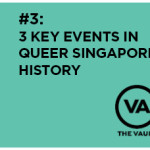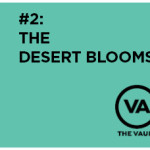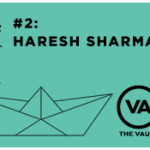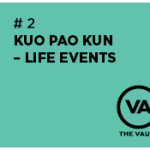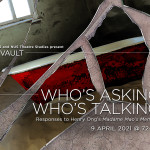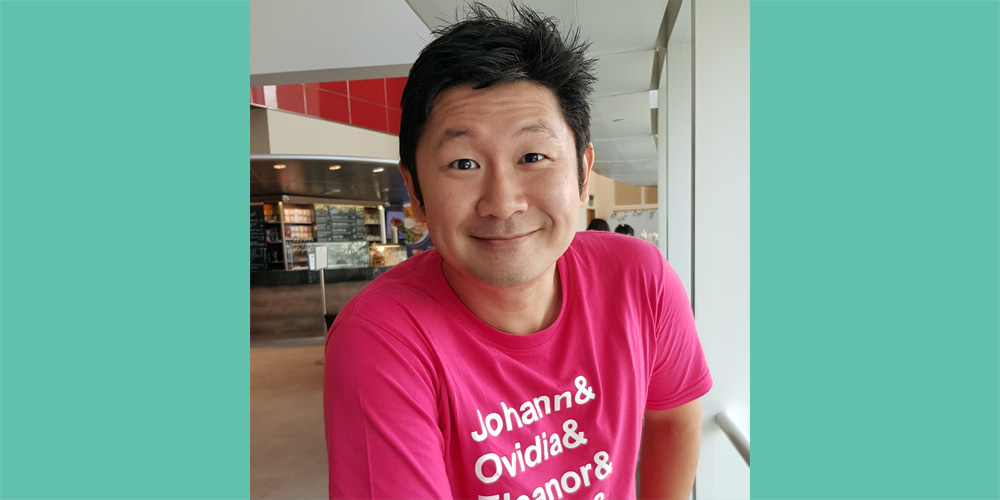
Writer Ng Yi-Sheng has taken on a rather ambitious project – to write a history of queer Singaporean theatre in The Vault: Desert Blooms. But it’s not the first time he’s done something like this.
In 2006, Yi-Sheng wrote the non-fiction work SQ21: Singapore Queers in the 21st Century, a collection of stories based on interviews with LGBTQ Singaporeans. The book broke new ground by featuring real names and real stories. His foray into marginalised histories also resulted in 2018’s Ayer Hitam, a lecture-performance about the lesser-known history of Black people in Singapore, which premiered at the M1 Fringe Festival that year and has since been restaged twice.
We chat with Yi-Sheng to find out more about Desert Blooms.
Why is a project like Desert Blooms needed?
It’s weird how so many of us are going back to the archive and embracing documentary theatre. This year especially, there’s a greater, top down-stimulated interest in history.
For queer people in Singapore, we don’t have enough of a historical narrative. I think a certain one exists among some queer intellectuals, but it hasn’t been mythologised the way, say, Stonewall has. A myth is any narrative that becomes important to the origins of a community, whether it’s King Arthur, or Gilgamesh or LKY.
There is a certain mythologisation of moments, like in the films Tanjong Rhu and Bugis Street. But what I realised as soon as I said I wanted to look at queer theatre from 1985 to 1995, is that this period has got a lot in it. We have the redevelopment of Bugis Street. We have the Marxist Conspiracy. We have Josef Ng. We have the Tanjong Rhu and Rascals incidents.
What I want to show is that the artistic revolution during this period is part of the shift in the national queer consciousness. It’s not just what queer people think of themselves, but it’s the way people in Singapore regard the queer community, waking up to the fact that they exist, developing feelings about them, whether it’s paranoia, disgust, or otherwise. For example, when Mergers and Accusations was advertised, it wasn’t advertised as a queer play. People just turned up and were surprised. The small number of people who could be called a mainstream audience then were suddenly confronted with queerness and given the opportunity to empathise. And it was happening in all four official languages.
I would like there to be a sense of heritage. If you’re queer and if you choose to see yourself as part of the queer community, you should have a Singaporean heritage to look back on. And literature and drama is a part of how this heritage emerged.
Why are you so interested in queer history?
I did my undergraduate studies at Columbia University, very close to the birthplace of the modern queer rights movement. And we had talks by people involved in Stonewall. Columbia also has Barnard next door, which is a women’s [liberal arts] college, so what we ended up with was a very diverse queer activist community in terms of ethnicity, gender and sexual identity.
And so, when I come back to Singapore, I was thinking in those terms already. Like when I was asked to do SQ21: Singapore Queers in the 21st Century [a collection of real-life Singaporean LGBTQ stories which was published in 2006], most of the interviewees initially suggested were Chinese Christian men. And when we had early editions of ContraDiction [an annual LGBTQ literary event], it was mostly Chinese men performing. But there have been attempts to cultivate a culture of diversity and the queer literature scene in Singapore did end up being very inclusive. With GASPP: A Gay Anthology of Singapore Poetry & Prose [published in 2010], we were trying to include a diverse set of writers, trying to show people there were all these queer writers.
So you can see that this is the kind of narrative I’m interested in constructing, based on how queer history involves narratives of diversity.
Who is Desert Blooms intended for?
I have a desire to teach everyone that there is a queer history. In the literary sphere, I very often interact with younger people, sometimes, younger queer people. I realised that many don’t know anything about our local queer history. I mean, Singlit wasn’t taught in schools until very recently.
A couple years ago, this NS boy on the SingPoWriMo [Singapore Poetry Writing Month] Facebook said there aren’t a lot of queer writers in Singapore. And I was like… [Yi-Sheng makes a face].
Before the Internet, you do grow up queer and alone. It’s unlike a culture that your family already belongs to. But given what a socially connected, wired society we are now, and how well documented Singapore is online, it’s ridiculous for someone today to grow up thinking that there is a paucity of queer writers.
What would you like audiences to get out of Desert Blooms?
One thing I mentioned in the script quite a bit is how young people were when they were doing all of this. There’s this headiness, this excitement to this whole period.
Tan Kheng Hua produced the Twenty-Something Festival a few years back, and I remember someone commenting to her, “Oh, when we were in our twenties, we were doing much more fearless things.”
Also, it’s about how one play connects to another, because these people were hanging out, they were seeing each other’s plays. They had friends in common, they had parallel experiences. It’s like reading the poems of the Romantic period, but also gossiping about what Shelley and Byron were up to.
That is this thing that I want to communicate to the audience. I want to show people that this was an extraordinary time in Singaporean cultural history, where arts, politics and society were undergoing a profound transformation. And queerness is at the centre of it.
By Daniel Teo
Published on 21 Nov 2019


